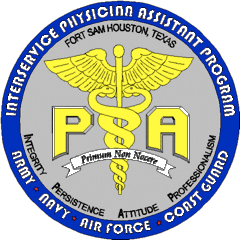 So, the first year of PA school is didactic, the second year, is clinical rotations. Depending on the school, rotations usually last anywhere from 5-9 weeks. I believe there are certain requirements that PA schools have as far as mandatory rotations for every student. I am not certain about this, but I know we all had family practice, emergency medicine, pediatrics, surgery, OB/GYN, internal medicine, and primary care rotations. I also did an elective rotation in sports medicine. These were all pertinent rotations, and after about half way through the year I actually began to see the light at the end of the tunnel and got excited about the end of school and my future as a PA.
So, the first year of PA school is didactic, the second year, is clinical rotations. Depending on the school, rotations usually last anywhere from 5-9 weeks. I believe there are certain requirements that PA schools have as far as mandatory rotations for every student. I am not certain about this, but I know we all had family practice, emergency medicine, pediatrics, surgery, OB/GYN, internal medicine, and primary care rotations. I also did an elective rotation in sports medicine. These were all pertinent rotations, and after about half way through the year I actually began to see the light at the end of the tunnel and got excited about the end of school and my future as a PA. At the end of each rotation we had to return to the Penn College campus for a written and hands on practical test. The practical test included a live patient with complaints and pertinent diagnostic tests. It was our responsibility to evaluate the patient, extract a history, perform and exam, and come up with a working differential diagnosis before finally diagnosing and treating the patient appropriately. These days were the most stressful. The days working through the clinical rotations was somewhat relaxing, and other than an ignorant physician or two from time to time, it was a good experience and a benefit in the overall aspect of the PA education. But those few days back on campus, with the written exams and practical application of the job, they were what most students dreaded. Unfortunately, the practical part of the exam process is completed by a evaluator, who is a licenced PA. One drawback to the process is that the evaluating PA may, or may not be, a subject matter expert in the diagnosis they are grading. Another complication with the grading of the practical exercise is the fact that every PA develops there own idea of how to practice and their individual practice techniques. This can cause some grader bias, even though they have a checklist that they are working with, to make sure the student hits all the important details of the history and exam. It can be easy to get caught up in the individual evaluating PAs frame of reference of how to practice and that can reflect in the overall grade for the practical exercise.
PA school is certainly not the most difficult part of becoming a PA, the board exam is not either. The most difficult part is learning how to practice, and learning the specific practice one chooses. School is just a foundation, there is no way to understand medicine or learn all there is to know in 2 years of school, or in 25 years of practice for that matter. Don't let anyone fool you, anyone who feels they have medicine figured out is setting themselves up for a huge reality check and failure. Hopefully that doesn't translate into someones death, but at times it does. Always know your limitations and when and where to look for help. That is the single most important piece of information I can share.
School sets the foundation, passing the boards certifies you to practice, developing a practice, that takes time and learning, not just the cerebral aspect, but the mental and emotional aspect also. More to follow on that in the coming posts.
 |
| One of the best programs is this program run by the U.S. military http://www.cs.amedd.army.mil/ipap/ |


No comments:
Post a Comment